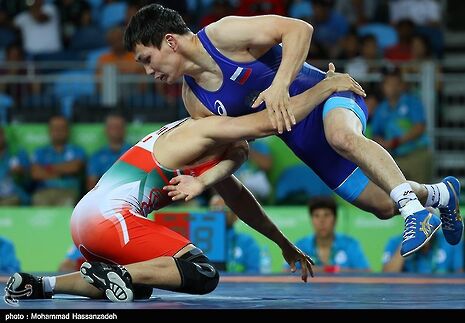Sports Law in Focus: Time for a Doping Crime?
In this edition of ‘Sports Law in Focus’, Keir Baker argues criminal law is not the way to stop doping in sports

It seems that these days it is fashionable for every sport to get embroiled in a doping scandal.
Internationally, there have been revelations about endemic and state-sponsored doping of athletes by the All-Russia Athletics Federation, while high-profile individuals such as Lance Armstrong and Maria Sharapova have also faced bans for their actions. Domestically too, the governing bodies of sports in the UK – ranging from athletics (see Dwain Chambers) to football (see Mamadou Sakho) and rugby (see Owen Morgan and Greg Roberts) – have had to hand out punishments for athletes using substances to get ahead of their rivals.
In all, the prevalence of doping seems to suggest that a fundamental rethink of the way in which sport tackles cheating via the use of substances is needed. One interesting argument that is undergoing a resurgence in support is that the aversion to allowing the criminal law to intervene and punish those who breach the rules must be overcome. But while it is undoubted that those caught doping must face harsh(er) penalties – indeed, the credibility of sports and the dignity of those who play and follow it is on the line – the situation is too heavily nuanced for this proposal to be viable.
"a fundamental rethink of the way in which sport tackles cheating via the use of substances is needed"
The basis behind the rules regarding doping have largely remained static since the International Association of Athletics Federations banned doping in 1928, and the role of enforcing these rules is held by the World Anti-Doping Agency (“WADA”) that was set up in 1999. At its disposal, WADA can order traditional blood and urine tests to detect particular banned substances, and can also use an athlete’s ‘biological passport’ to track changes in profile over time: a dramatic change is often an indication of doping.
If WADA – through either method – discovers evidence that an athlete has been doping, it can hand out punishments that range from disqualifications from events and competitions to the forfeiture of medals or prizes. WADA can also administer sanctions on coaches found to be complicit in doping, which typically takes the form of the removal, or the non-renewal, of their coaching license.
In parallel to the punishment that WADA can deliver, certain countries – such as Italy, Austria and France – have made doping a criminal offence. Introducing the criminal law then would not be a novel idea. However, in all of the legal jurisdictions that make up the United Kingdom (Scotland, England and Wales, and Northern Ireland), WADA is the body with the sole jurisdiction to discipline offenders. And, because WADA has no power or jurisdiction to use the law to prevent and tackle doping, athletes committing doping ‘offences’ in England are able avoid facing legal action.

Indeed, the World Anti-Doping Code (“WADC”) – which outlines the internationally-applicable rules governing doping – holds itself out to be not legally binding, explicitly stating that the code is ‘distinct in nature from criminal and civil proceedings.’ Instead, WADC are mere rules ‘governing the conditions under which sport is played’: by partaking in their chosen sport, athletes implicitly agree to respect and comply with the rules.
This may seem surprising: doping not only facilitates cheating that undermines the competitive nature of sport, but there are also issues of state paternity and protection of individuals – many banned substances have serious side effects including organ failure and addiction. In relation to other substances that can cause similar issues, the criminal law has stepped it to intervene; possession of heroin and cocaine for example carry heavy sentences.
But while extending the ambit of the criminal law to cover doping would send a powerful message that sport is seeking to tackle cheating via the use of substances, it is questionable whether doing so would actually lead to any concrete progress. For one thing, the criminalisation of doping will not resolve the long-standing issues that persist in regards to the detection of doping practices: its effect will be one of mere deterrence that will not tackle current offenders. Furthermore, there are questions as to whether that concept of deterrence is even necessary – for many athletes, the idea of being banned from competing in their sport or the removal of medals and prizes – and the following income from sponsorship that comes therewith – is a sufficient deterrent to which criminalisation will add very little.
Finally, there are practical issues. The current rules under WADC operate using a concept known as strict liability: if a banned substance is detected during a test, the ‘offending’ athlete will be automatically banned no matter the extent to which they were at fault. While appearing draconian, this allows for comprehensive anti-doping measures.
However, the use of the criminal law would introduce issues concerning a concept known as the ‘burden of proof.’ The criminal law operates using a fundamental principle known as ‘innocent until proven guilty’. Therefore, if WADA were to detect a banned substance in an athlete’s sample, they would still have to go through legal proceedings to prove beyond all reasonable doubt that the athlete had intended to take that substance, or had done so with the intention of cheating. These are complications and nuances that might allow offending athletes to escape conviction, as well as being costly and time-consuming.
Therefore, while it may seem that the protection of sports which many hold sacred in their lives justifies the introduction of criminal law to tackle cheats, such an approach might in fact toughen the task of the anti-doping authorities.
There is no doubt that a new, more robust procedure is needed to show doping the red card. But the criminal law is not the way
 News / Uni Scout and Guide Club affirms trans inclusion 12 December 2025
News / Uni Scout and Guide Club affirms trans inclusion 12 December 2025 News / Cambridge Vet School gets lifeline year to stay accredited28 November 2025
News / Cambridge Vet School gets lifeline year to stay accredited28 November 2025 News / Pembroke to convert listed office building into accom9 December 2025
News / Pembroke to convert listed office building into accom9 December 2025 Features / Searching for community in queer Cambridge10 December 2025
Features / Searching for community in queer Cambridge10 December 2025 News / Uni redundancy consultation ‘falls short of legal duties’, unions say6 December 2025
News / Uni redundancy consultation ‘falls short of legal duties’, unions say6 December 2025











